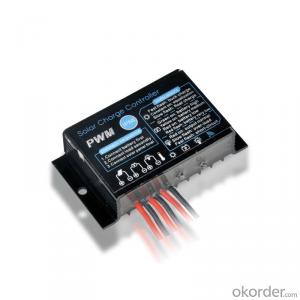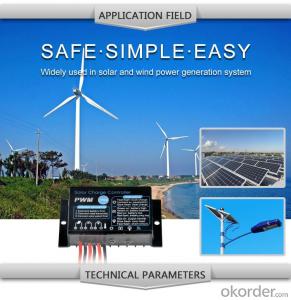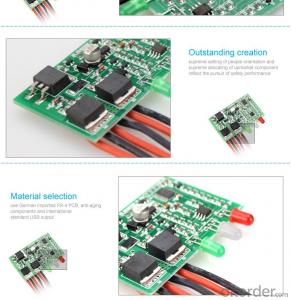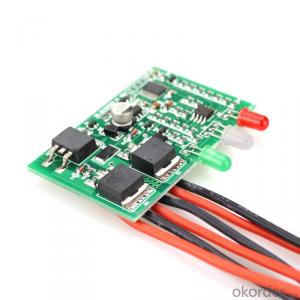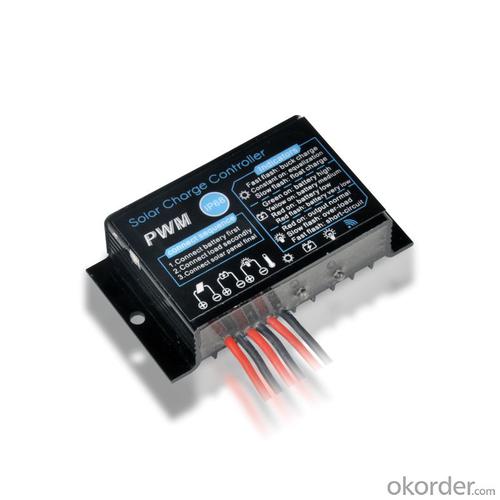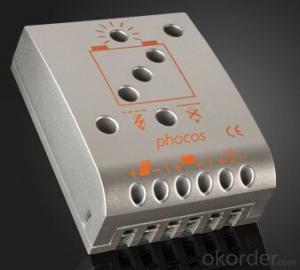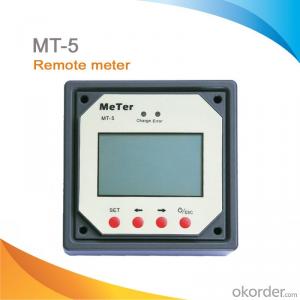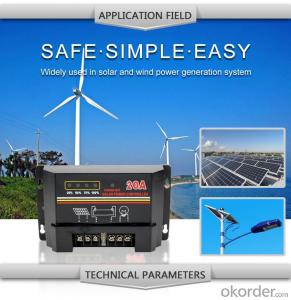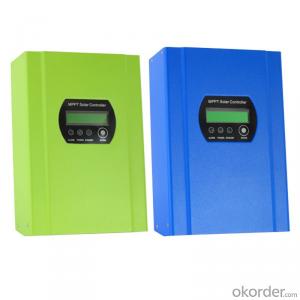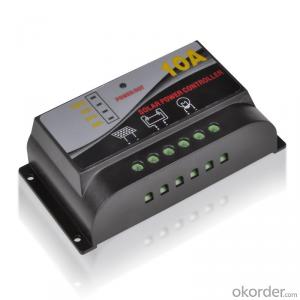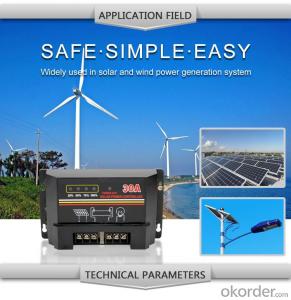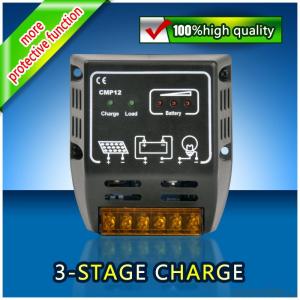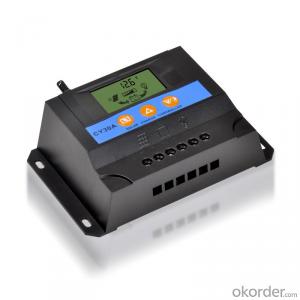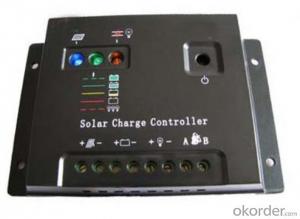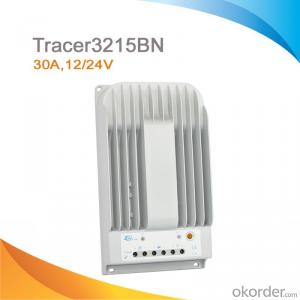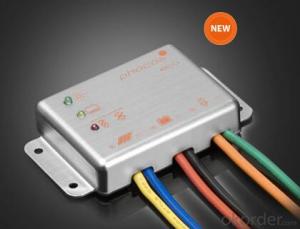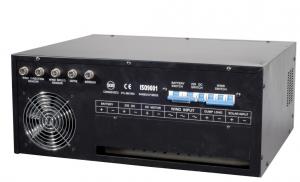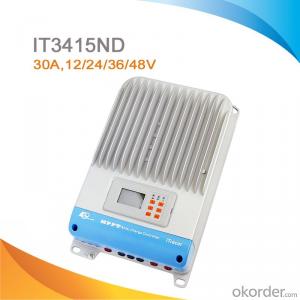Hybrid Solar Charge Controllers - Solar LCD Controller with Best Price Hot Selling Model IR210
- Loading Port:
- China main port
- Payment Terms:
- TT or LC
- Min Order Qty:
- 1 unit
- Supply Capability:
- 10000 unit/month
OKorder Service Pledge
OKorder Financial Service
You Might Also Like
Product Introduction
Solar controller is control device which can control solar panel and transform solar energy into electricity then store to the battery bank. Solar controller is the most important part in offgrid system, whose performance has much effect on life expectancy and operation of the whole system, especially the battery expectancy.
Application Areas
Standalone Photovoltaic power station
Standalone Domestic household photovoltaic power system
Mobil communication base stations, expressway and other non-residential regions.
Coastal islands, remote mountainous, border posts for regions shortage of or without electricity.
Government demonstration projects, landscape lighting project etc.
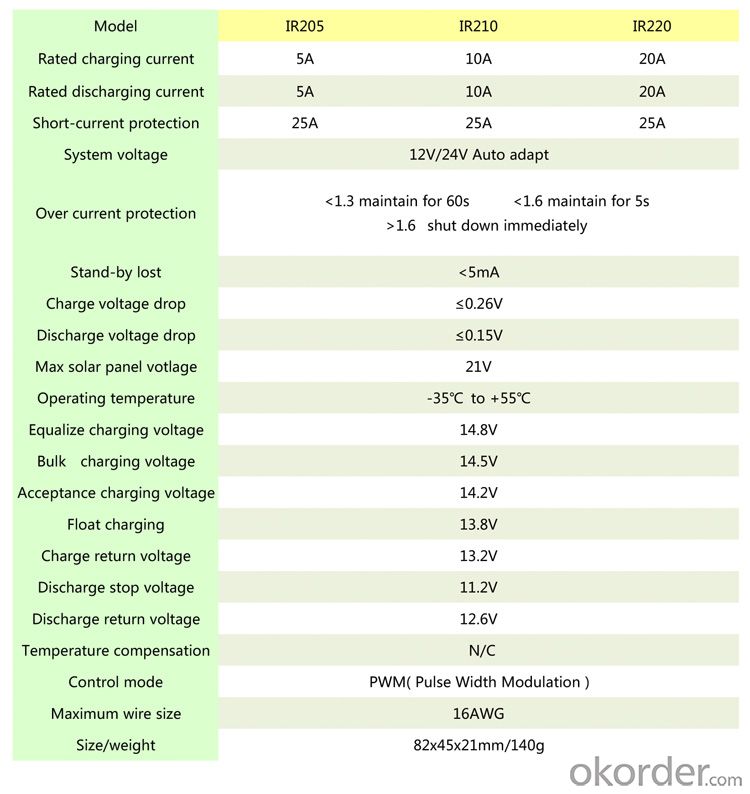
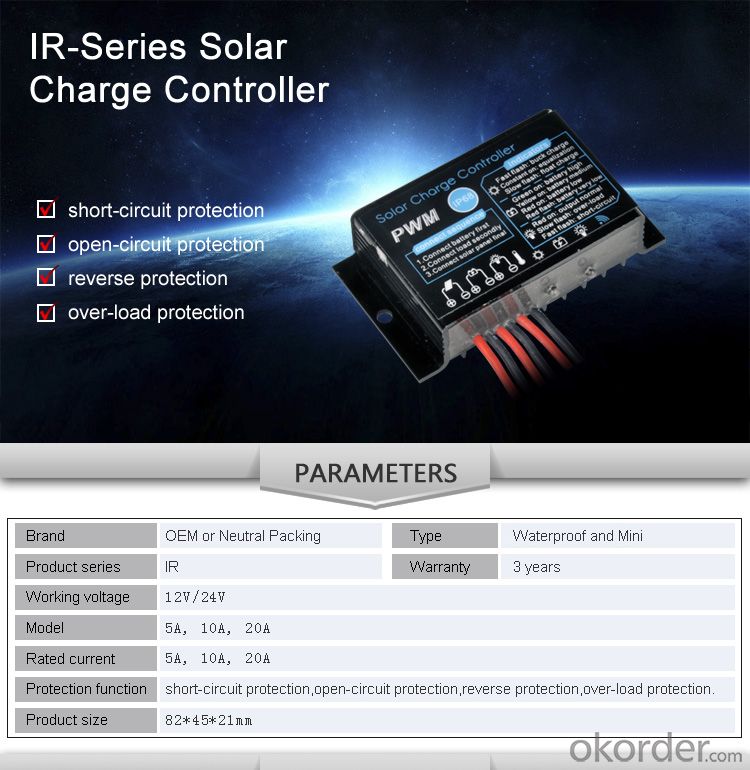
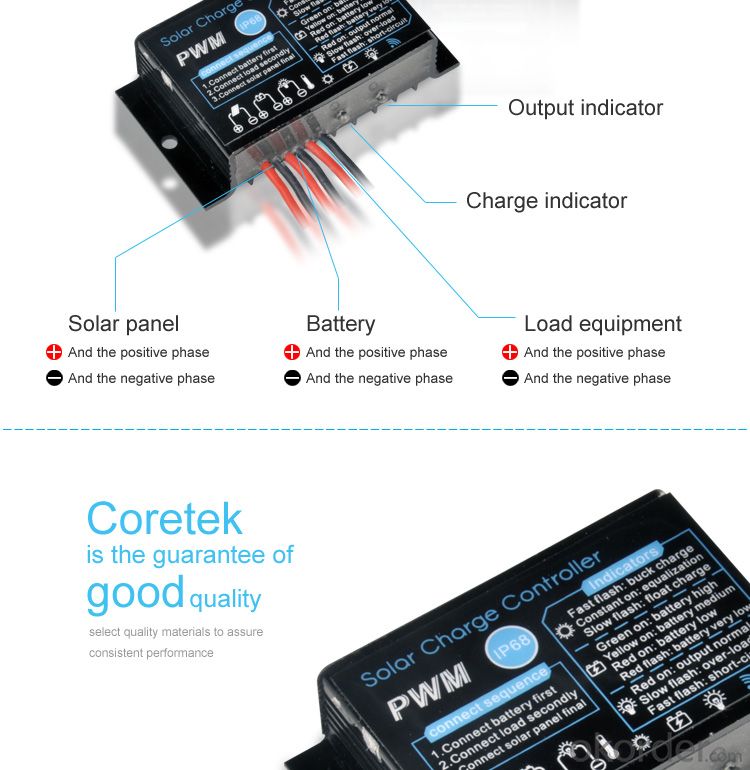
- Q: How does a solar controller handle voltage fluctuations in the battery?
- A solar controller is designed to handle voltage fluctuations in the battery by regulating and controlling the charging process. When the solar panels generate electricity, the controller monitors the voltage and current output to ensure that it is within the acceptable range for charging the battery. If the voltage from the solar panels is higher than the battery's voltage, the controller will reduce the charging current to prevent overcharging and potential damage to the battery. This is achieved by using a charge regulation algorithm that adjusts the charging current accordingly. Conversely, if the voltage from the solar panels is lower than the battery's voltage, the controller will increase the charging current to compensate for the lower input voltage. This helps to ensure that the battery receives sufficient charging power to reach its optimal voltage level. Additionally, a solar controller may also incorporate a built-in voltage regulator to provide a stable and consistent output voltage to the battery. This regulator helps to smoothen out any fluctuations in the solar panel's voltage output, providing a more reliable and consistent charging current to the battery. Overall, a solar controller plays a vital role in handling voltage fluctuations in the battery by regulating the charging process, preventing overcharging or undercharging, and ensuring that the battery receives the appropriate voltage and current for efficient and safe charging.
- Q: Can a solar controller handle high voltage fluctuations?
- Indeed, the solar controller is specifically engineered to manage fluctuations in high voltage. Acting as an indispensable component within a solar power system, the solar controller is responsible for regulating and managing the electricity flow from the solar panels to the batteries. Equipped with a range of protective mechanisms, its purpose is to handle voltage fluctuations effectively, guaranteeing the secure and efficient operation of the entire system. One of the primary roles of the solar controller is to regulate the voltage and current supplied by the solar panels, ensuring they align with the battery requirements. This is achieved through continuous monitoring of voltage levels and subsequent adjustment of the charging parameters. Consequently, the solar controller is proficient in handling high voltage fluctuations, guaranteeing the batteries are charged within their optimal voltage range. Alongside voltage regulation, solar controllers also offer protection against overvoltage and overcurrent scenarios. Incorporating built-in mechanisms like overcharge, short circuit, and reverse current protection, the system is shielded from potential damage caused by fluctuations in voltage. Moreover, top-quality solar controllers often feature advanced attributes such as maximum power point tracking (MPPT) technology. These MPPT controllers are capable of efficiently converting excess voltage into usable power, enhancing the overall energy output of the solar panels and enabling them to handle even higher voltage fluctuations. In conclusion, a meticulously designed solar controller possesses the capability to manage high voltage fluctuations effectively, ensuring the secure and dependable operation of a solar power system. By regulating voltage and current, providing protection against overvoltage and overcurrent scenarios, and maximizing the energy output of the solar panels, it serves as a crucial component within the system.
- Q: Are there any disadvantages of using a solar controller?
- Using a solar controller has its drawbacks. Firstly, the cost of purchasing and installing a solar controller can be quite high. This can increase the overall expenses of setting up a solar power system, which might discourage certain individuals or businesses. Secondly, operating and maintaining solar controllers can be complex. They require proper programming and configuration to ensure optimal performance, as well as regular maintenance to keep them running efficiently. This may necessitate technical expertise or the hiring of professionals, resulting in additional costs. Furthermore, solar controllers may have limited compatibility with specific solar panels or battery systems. It is crucial to ensure that the solar controller is compatible with the particular components of the solar power system. Otherwise, it may malfunction or even cause damage. Lastly, solar controllers rely on sunlight for power generation. Therefore, they may not be as effective in areas with limited sunlight or during cloudy days. This can lead to decreased energy production and may require alternative power sources or energy storage solutions. In conclusion, while solar controllers offer various advantages in terms of regulating and optimizing solar power systems, they also come with certain disadvantages that should be taken into account before making a decision.
- Q: Can a solar controller be used with sealed batteries?
- Yes, a solar controller can be used with sealed batteries. The solar controller regulates the charging process and prevents overcharging, which is beneficial for maintaining the longevity and performance of sealed batteries.
- Q: What are the features of a good solar controller?
- A good solar controller should have several key features. Firstly, it should be able to efficiently regulate and control the charging process of the solar panel, ensuring that the battery is charged optimally without overcharging or damaging it. Secondly, it should have a high-quality display that provides clear and accurate information about the battery status, solar panel performance, and other relevant data. Additionally, it should have built-in protection mechanisms such as overcharge, over-discharge, and short-circuit protection to safeguard the battery and other connected devices. Furthermore, a good solar controller should have a robust build quality, with durable materials that can withstand harsh weather conditions. Lastly, it should offer user-friendly features, such as easy installation, intuitive interface, and the ability to adjust settings according to specific requirements.
- Q: How does a solar controller handle low-light conditions?
- A solar controller handles low-light conditions by adjusting the charging parameters to optimize the energy conversion from the solar panel. It regulates the voltage and current to ensure that the battery receives the maximum possible charge, even in low-light situations, while also preventing overcharging and damage to the battery.
- Q: Can a solar controller be used with solar panels of different colors?
- Yes, a solar controller can be used with solar panels of different colors. The color of the solar panels does not affect the functionality of the solar controller, as it is designed to regulate the voltage and charge the batteries connected to the solar system, regardless of the color of the panels.
- Q: Can a solar controller be used with a solar water heating system?
- Yes, a solar controller can be used with a solar water heating system. A solar controller is designed to regulate and optimize the operation of solar panels, which generate electricity from sunlight. While a solar water heating system uses solar panels to heat water directly, the controller can still be used to monitor and control the temperature and flow of water, maximizing the efficiency of the system.
- Q: Can a solar controller be used with solar panels of different temperatures?
- Yes, a solar controller can be used with solar panels of different temperatures. Solar controllers are designed to regulate the charging process of batteries connected to solar panels, regardless of the temperature of the panels. The controller monitors the voltage and current from the solar panels and adjusts the charging parameters accordingly. This ensures that the batteries are charged efficiently and safely, regardless of the temperature conditions. However, it is worth noting that extreme temperatures, whether hot or cold, can affect the overall performance and efficiency of the solar panels themselves.
- Q: Are there any energy-saving features in a solar controller?
- Solar controllers typically have various energy-saving features. One notable feature is their ability to regulate and optimize battery charging in the solar system. This ensures efficient charging, preventing overcharging and extending battery lifespan. Additionally, solar controllers often include a low voltage disconnect (LVD) feature. When the battery voltage drops below a certain level, the load automatically disconnects to prevent excessive discharge, which can harm the batteries. Some advanced solar controllers even have maximum power point tracking (MPPT) technology. This technology continuously adjusts voltage and current to match ideal operating conditions, maximizing energy harvested from the solar panels. As a result, the overall energy efficiency of the solar system is significantly improved.
Send your message to us
Hybrid Solar Charge Controllers - Solar LCD Controller with Best Price Hot Selling Model IR210
- Loading Port:
- China main port
- Payment Terms:
- TT or LC
- Min Order Qty:
- 1 unit
- Supply Capability:
- 10000 unit/month
OKorder Service Pledge
OKorder Financial Service
Similar products
Hot products
Hot Searches
Related keywords
